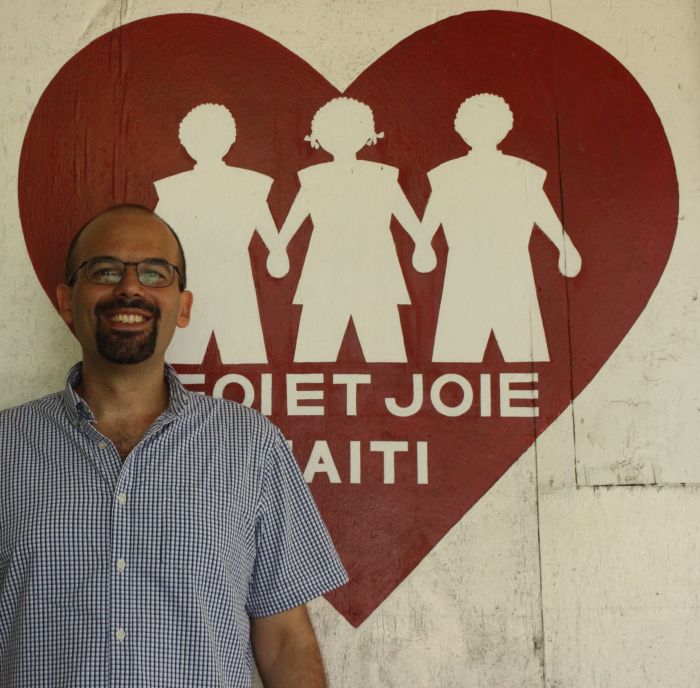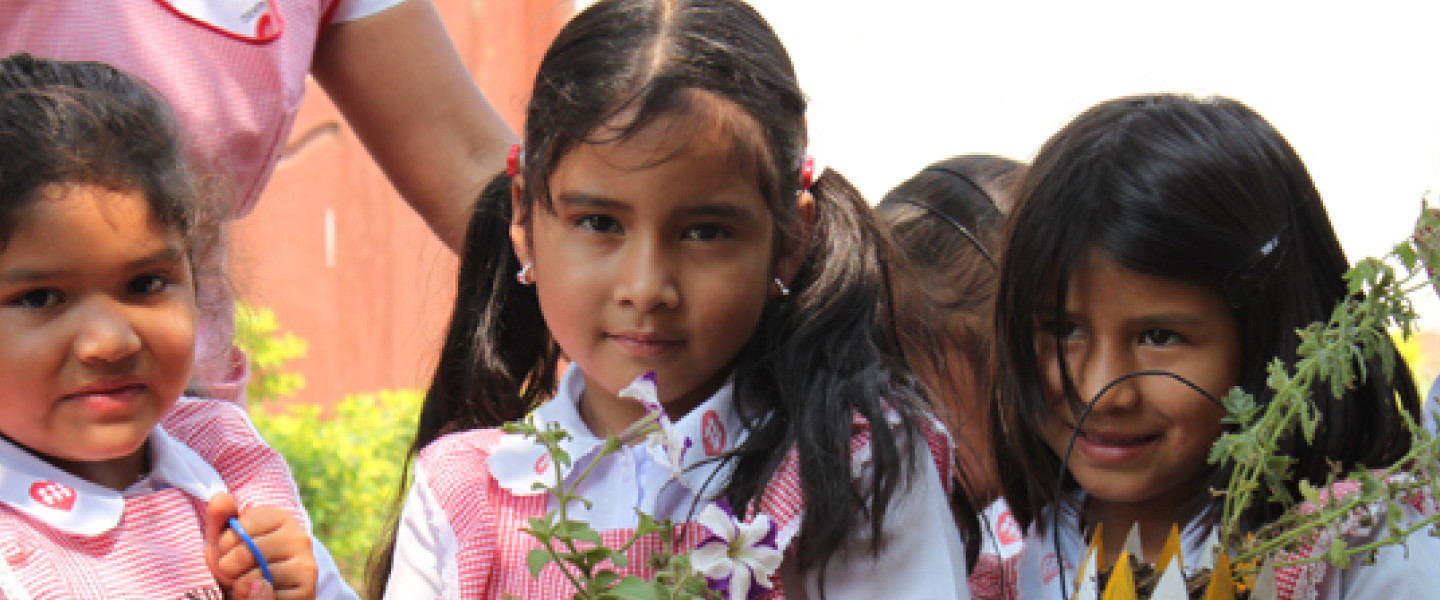
Fr. Emilio Travieso, SJ, is the new Assistant Director of Foi et Joie Haïti (Fe y Alegría Haiti in French). Originally from Florida and with studies in Sociology, Philosophy, and Theology, Fr. Emilio is completing a PhD in International Development at Oxford University; studying how food systems can be improved and conducting a research on the case of Yomol Atel, a group of cooperatives formed by Tzeltal families from Chiapas, Mexico, that work coffee from a perspective of social justice and defense of their territory. In the midst of his new appointment as Assistant Director, Fr. Emilio shares in a short Q&A with Friends of Fe y Alegría his impressions of the country and his hopes for the future of Fe y Alegría in Haiti.
When did you arrive in Haiti? How have the first few days/weeks in the country been?
I arrived at the end of July, just in time for the several important events for the Jesuits in Haiti. Fr. Jean Denis Saint-Félix, previously the Secretary of the Office of Justice and Ecology for the Jesuit Conference of Canada and the United States, became the new superior of Haiti. Then, all of the Jesuits in the country made an eight-day retreat (the Spiritual Exercises) together. Shortly after that, four Jesuits were ordained as priests, one novice took vows, and a group of young men entered the novitiate. It was a wonderful way for me to get to know all of the Jesuits, and for us all to renew our sense of mission together.
What are your first impressions of Haiti and Fe y Alegría Haiti so far?
Even though I’d never lived here permanently before, I have visited Haiti many times over the years, and I’d already had a chance to visit all of the Fe y Alegría schools throughout the country. That’s helped me to have a smooth landing, and everybody has been extremely welcoming.
The team is mainly Haitian, but also includes people from various Latin American, African, and European nationalities. Besides Jesuits, there are sisters from seven other Catholic religious congregations, as well as diocesan priests, who are part of the network. Of course, there are also plenty of people from other faith backgrounds. It’s beautiful to see everybody coming together around a shared mission for the common good.
What are your impressions of the employees and members you have had the chance to meet?
Two things strike me about the Fe y Alegría team. One is that these people are passionate about making sure that all children in Haiti have access to a truly excellent education. The other is that even those people who are in extremely remote rural schools know that they are part of something bigger, through the Fe y Alegría network, and that makes a real difference to them.
How did you end up being part of Fe y Alegría Haiti?
I was blessed to get my dream job! In Ignatian spirituality, we believe that once our hearts are in tune with Jesus of Nazareth, we can discover God’s will for us by paying attention to our deepest desires and to the needs around us. In this case, the two criteria matched up well. For Jesuits, our vow of obedience adds a third aspect, which is meant to add some objectivity and a “big picture” view to our discernment. Happily, my superiors agreed that this was a good fit, and they confirmed the voice in my heart by entrusting me with this mission.
Do you hope to combine your knowledge and background in international development with your new role?
Bringing excellent schools to marginalized communities is necessary but not sufficient. Unless we can also create good jobs in those communities, the most qualified people – our graduates – end up leaving to look for work elsewhere. That’s why I love that Fe y Alegría is a movement that promotes both education and “social promotion” at the same time. I hope to work with my colleagues to gradually strengthen that second dimension. Of course, we want to do that in accordance with our values; we want to build thriving economies that put people over profits while caring for the environment.
To people who have never been to Haiti but only know the country for what’s portrayed in the news, what would you tell them about the country and its people that they don’t know?
There is sooo much more to Haiti than what they show on the news! Haitian cuisine, music, visual arts, and other cultural expressions are deeply sophisticated, not to mention enjoyable. This is a reflection of Haiti’s unique history, and its strong identity as a people who gained their freedom against all odds. I would encourage people to come and see this vibrant country for themselves. It also might be fun to get to know a Haitian community in a city near you. I first fell in love with Haiti through its diaspora in Miami and Boston!
What are your hopes and goals for Fe y Alegría in the country?
I think Fe y Alegría has huge potential in Haiti. Institutionally, we went through a growth spurt after the 2010 earthquake, going from two to seventeen schools over a short period. Now we are in the process of consolidating our work. Our pre-schools are growing into primary schools, our primary schools are growing into secondary schools, and our secondary schools are incorporating vocational-technical training. We’re bringing counseling, sports, and other creative programs into the schools. Our teacher training courses are officially certified by the Ministry of Education, and we’re helping communities grow food and build homes.
My hope is that we will be able to not only keep all of this up, but also bring it to scale, in three ways. We want to scale “out,” to reach a larger number of communities. We want to scale “up,” by helping to design policies that will improve the country’s education system as a whole. And we want to scale “deep,” by working at the level of values and culture, so that the Fe y Alegría vision becomes something that flows naturally from within.
What role do you think Fe y Alegría plays in a country like Haiti?
Fe y Alegría is like leaven for the dough. Because we work together with the Haitian state to strengthen public education, our impact goes way beyond the work we do directly in our own schools. We are showing that it’s possible to overcome the many challenges, and we’re collaborating with others who are doing similar work. Also, because Fe y Alegría is an international movement, we are able to bridge between educators in Haiti and other countries so that they can mutually enrich each other.
Anything else you may want to add?
Our slogan in Haitian Creole is “Yon timoun ki lekòl se benefis tout moun,” which means: “a child in school is everybody’s gain.” I like to add: “a child in school is everybody’s responsibility.” We are committed to working with all people of good will, near and far, to ensure that all children can become their best selves and contribute to the common good. Thank you to Friends of Fe y Alegría and your partners for supporting us in that mission.

